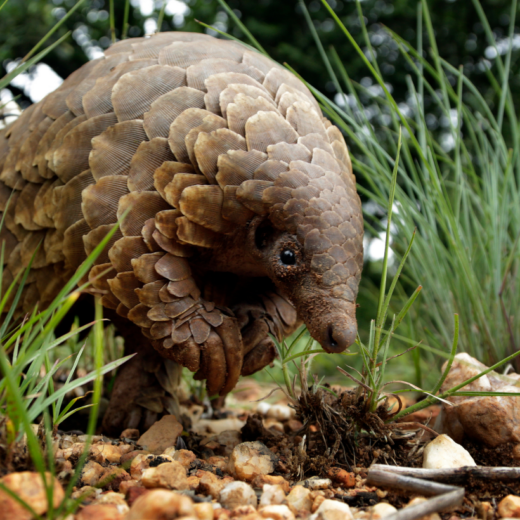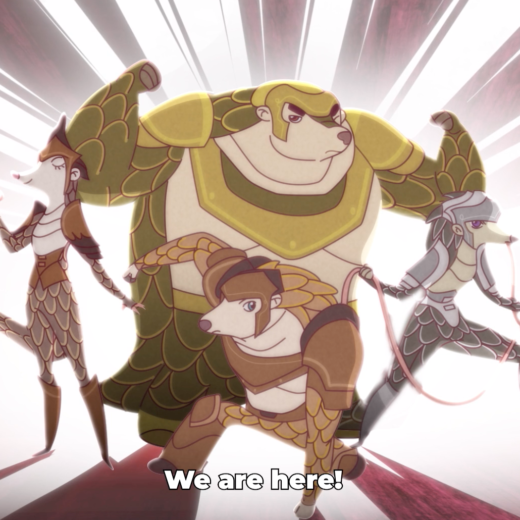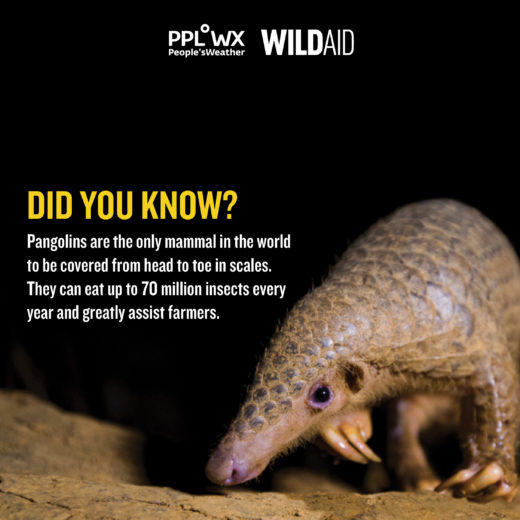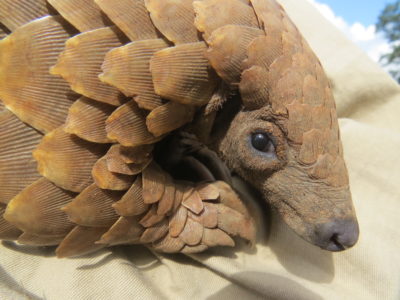
The International Union for Conservation of Nature (IUCN) declared on Tuesday that the status of three of the eight pangolin species has worsened in its update to the Red List of Threatened Species. Two African pangolin species, the white-bellied and the giant ground pangolin, moved from the “Vulnerable” to “Endangered” category, while the Philippine pangolin moved from “Endangered” to “Critically Endangered.”
The changes to the IUCN Red List designations come after the white-bellied and giant ground pangolin populations have fallen by 50%, while the Philippine pangolin population has fallen by 80% over the last 21 years, further demonstrating the urgency of increasing awareness of this devastating crisis and ending consumer demand for their products.
This announcement comes on the heels of several record-setting seizures of pangolin scale shipments from Africa to Asia indicating the massive volume of the trade.
“Pangolins are shy, slow-moving creatures that need immediate protection from poaching,” said WildAid CEO Peter Knights. “We hope the IUCN’s declaration that the pangolin’s situation has worsened sends a clear message that time is running out and governments in Africa and the markets in Asia need to act now.”
While many people around the world have never heard of the pangolin, it has become the most heavily trafficked wild mammal on our planet. It’s estimated that up to 200,000 are taken from the wild every year across Africa and Asia. In fact, some wild populations have declined by 94 percent since the 1960s: Once abundant in China, the Chinese Pangolin has now disappeared from most of its habitat.


During a recent trip to Nigeria with WildAid, actor Djimon Hounsou met an orphaned white-bellied pangolin named Juba at the Makog Animal Hospital. The veterinary clinic is run by Mark Rume Ofua, who rescues animals from poachers and bushmeat markets in his spare time. Locals call him Saint Mark. Pangolin meat is considered a delicacy by some in China and Vietnam and is also consumed as bushmeat in many African nations.
“White-bellied pangolins like Juba just became classified as endangered due to poaching,” said Hounsou. “We need to act now to truly protect them.”
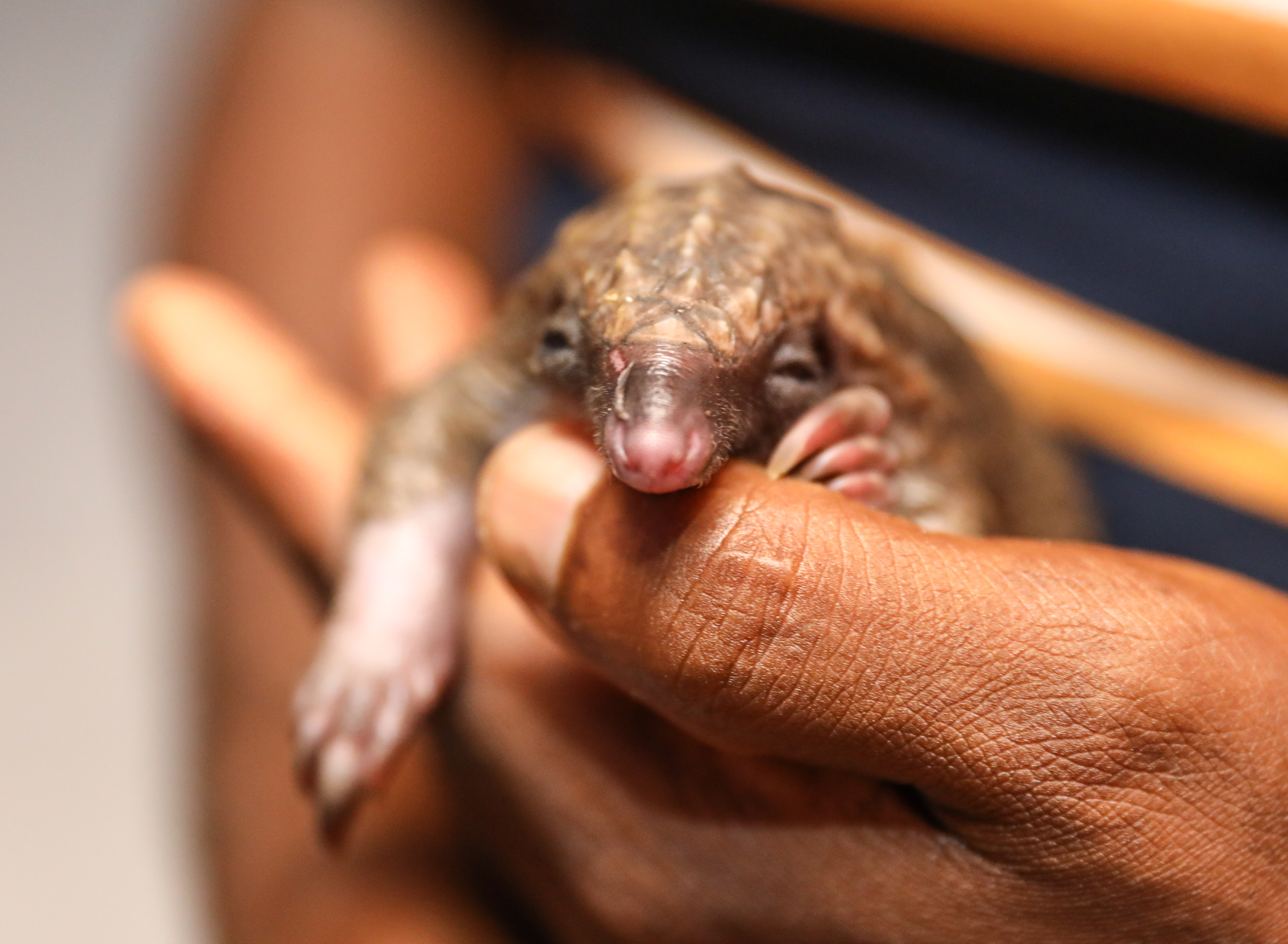

Many pangolin babies like Juba are prematurely separated from their mothers when they still require milk for nutrition. In 2018 WildAid partnered with popular Chinese actress Angelababy on a public awareness campaign with the message, “baby pangolins need their mothers too,” addressing the unsubstantiated belief that pangolin scales stimulate lactation in nursing mothers. Traditional medicine experts have vouched that there are many alternatives to pangolin scales, which are primarily made of keratin, the same protein found in human hair and fingernails.
All eight pangolin species gained the highest level of protection under CITES, the Convention on International Trade in Endangered Species of Wild Fauna and Flora, after the CoP17 held in South Africa in September 2016. Since this meeting, the equivalent of more than 500,000 pangolins have been seized globally. This figure – reached in just over three years – far outpaces the previous estimate from the early 2000s of one million pangolins trafficked in a decade.
Last week, the anti-smuggling bureau of Hangzhou Customs and the public security department in Wenzhou, Zhejiang province, announced they had seized over 25 tons of smuggled pangolin scales and detained 18 suspects in late October after a year of investigation and anti-smuggling efforts. It is believed “the scales were extracted from around 50,000 pangolins…representing the largest haul of smuggled wildlife products in recent years,” China Central Television reported.
According to media reports, the suspect “purchased the pangolin scales in Nigeria” and entrusted an overseas smuggling group to eventually transport them to Wenzhou, where customs discovered the scales wrapped with layers of ginger slices in bags,” said Chen Ling, a policeman from Wenzhou Public Security Bureau. “This makes them hard to detect during routine spot checks.”
Earlier this year, Singapore Customs intercepted two record-breaking seizures of pangolin scales in shipping containers en route from Nigeria to China amounting to 28 tons worth over US$50 million. China’s cooperation with Interpol and customs agencies from other countries has led to multiple prosecutions of smuggling rings as well as record-breaking seizures. These efforts have assisted Singapore, Vietnam, and Hong Kong SAR to intercept at least 11 tons of ivory, 84.8 tons of pangolin scales, and 90.5 kg of rhino horn this year alone.
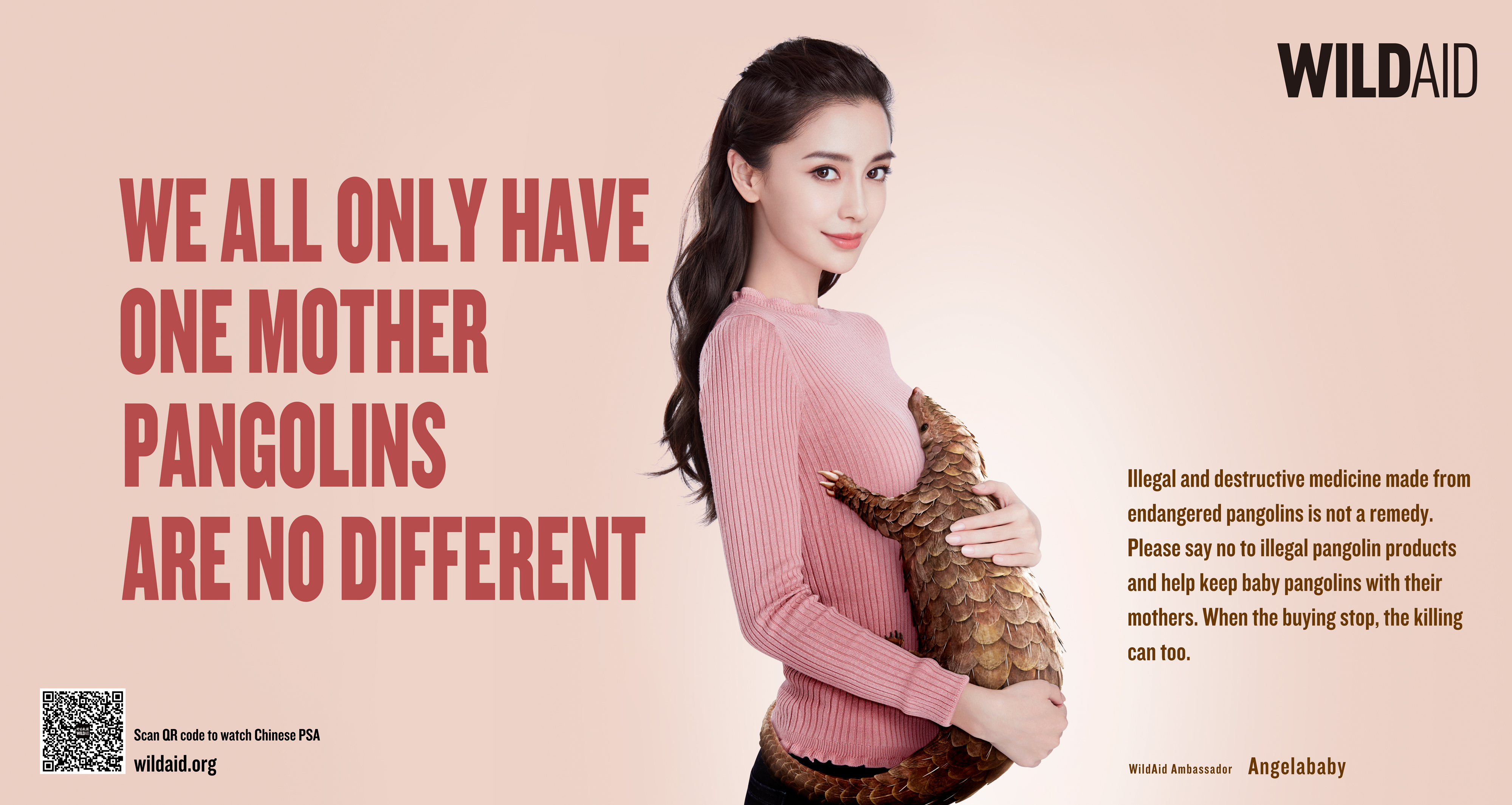

WildAid has been on the front lines of the fight for pangolins, launching our public awareness campaign in 2016, which aims to eliminate demand for pangolin in the world’s two largest markets – China and Vietnam – through behavior change campaigns designed to make consumption of the products socially unacceptable. With our partners, we have exposed some 800 million viewers in these countries to pangolin messaging across dozens of TV networks and on over 160,000 video screens in subways, airports, bus stops, hospitals and shopping centers. We have also deployed print and social media campaigns in the regions and convened Traditional Medicine experts for seminars to highlight the use of alternative ingredients.
With this disturbing news from the IUCN, environmental organizations across the globe recognize the urgency of the crisis and continue to develop research, anti-poaching, anti-trafficking, and educational awareness campaigns in order to save this vanishing species.
Stay in touch and get the latest WildAid updates.
SIGN UP
